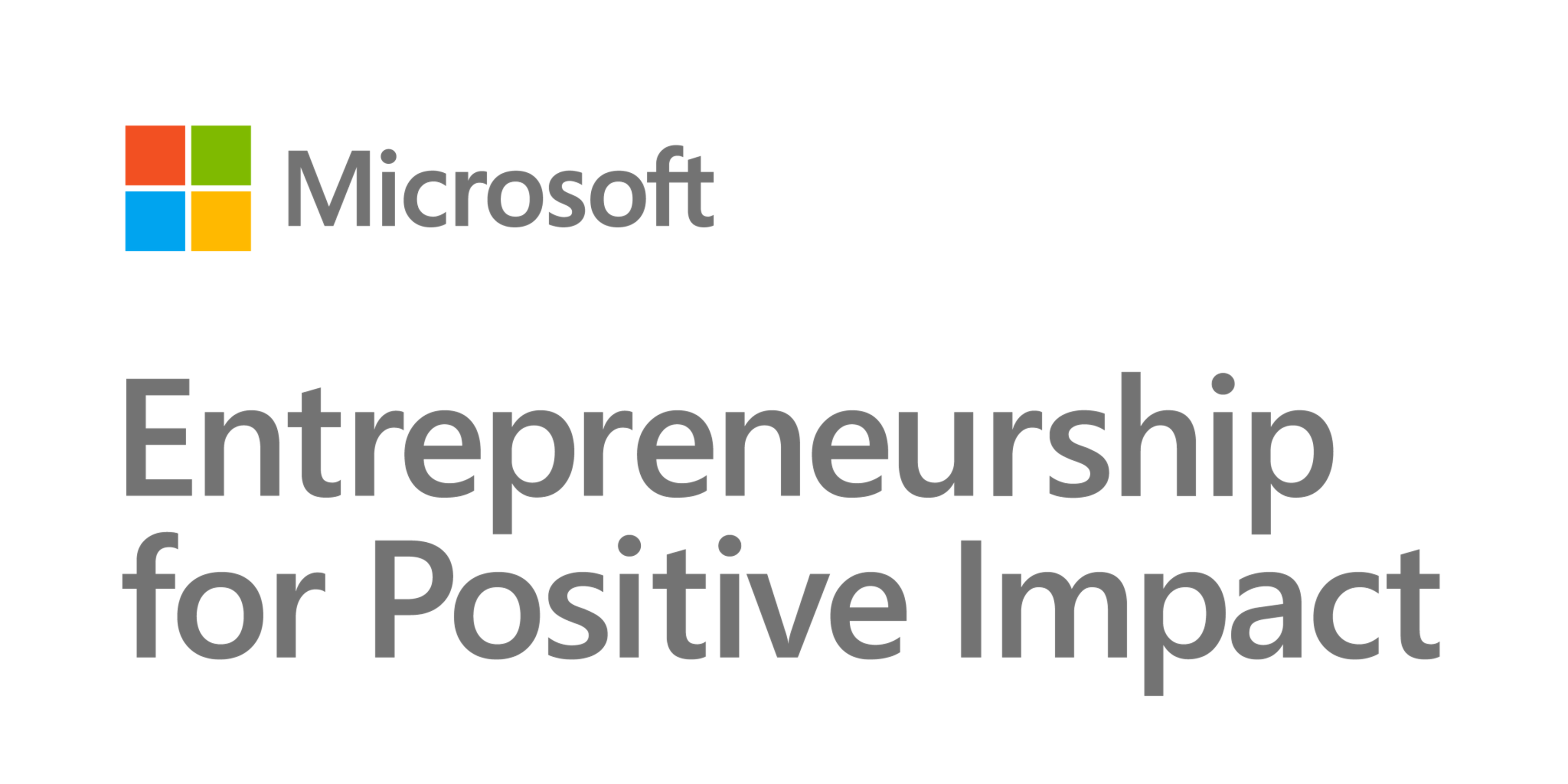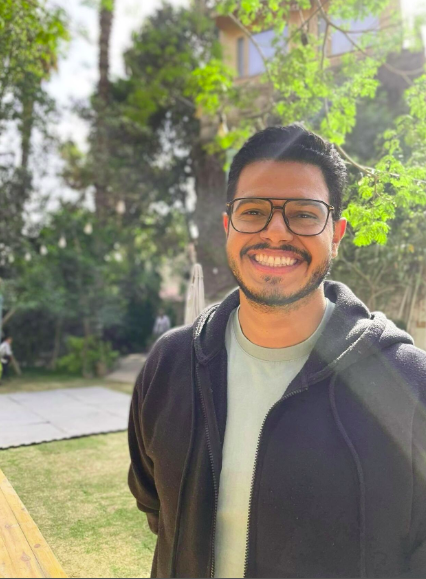Most people agree artificial intelligence (AI) will transform the world. The question is, how?
It’s estimated that AI could add almost $16trn to the global economy by 2030, according to PwC.
Through its Entrepreneurship for Positive Impact programme, Microsoft has been supporting some of these startups. This week, the five finalists of the inaugural Entrepreneurship for Positive Impact Cup met in Paris — a competition that highlights the ambitious ways companies are using AI to supercharge their impact.
Ahead of the final round of pitching, Sifted spoke to the finalists to find out more about their solutions.
Helping workplaces communicate inclusively
“Hey guys!”
A common message that pops up on Slack — often without the author realising they may be excluding female or non-binary colleagues. Swiss-based startup Witty has created a plug-in that identifies biased wording in the workplace. It suggests inclusive alternatives and explains the bias behind the word.
We’re now testing GenAI to find potential rules that we are missing — for example, finding all the phrases in English that use the phrase ‘man’.
The company was founded in 2018 as a diversity consultancy — but in 2021, it pivoted to AI because digital solutions can accompany daily tasks, like writing emails or job descriptions, and real-time feedback can help employees make positive changes without dragging them into a diversity and inclusion seminar. “That’s why the explainability aspect is so important,” says cofounder Lukas Smith.
Witty is exploring how GenAI can speed up its ability to identify problematic language. “We’re now testing GenAI to find potential rules that we are missing — for example, finding all the phrases in English that use the phrase ‘man’. We can use GenAI to lower the effort of [maintaining] a rules-based system,” says Smith.
Using AI to create fairer workplaces
Increasing workplace diversity is a goal many organisations have, but few achieve.
MeVitae says the pathway to change lies in a company’s HR data. Its tools plug into candidate and employee tracking software to reveal where imbalances are arising. It can provide clear pictures of things such as where candidates are dropping off in the hiring process, or which employees are getting promotions and which aren’t. It then uses AI to recommend interventions from a diverse range of tools such as anonymised recruiting to rectify these imbalances.
One of the powerful things about GenAI is it allows us to articulate the challenges an organisation faces.
Because AI often reflects biases that still exist in society, it can be considered risky to implement in HR. “Our aim is not just to tackle cognitive biases, but algorithmic biases as well,” says Riham Satti, MeVitae’s cofounder. “Imagine in the world of HR: you’ve got a machine telling you who to hire but without the reasoning behind it. It can be very risky.”
MeVitae’s tool, on the other hand, can explain to employers where they are overlooking certain candidates, and provide the numbers to back that claim up. “One of the powerful things about GenAI is it allows us to articulate the challenges an organisation faces,” Satti says.
Decarbonising IT departments
IT accounts for as much as 4% of greenhouse gas emissions globally — and there are concerns that widespread corporate adoption of AI could massively increase that impact.
We [are building] a solution that is intelligent enough to not only understand the environmental impact, but automate the right recommendations to decrease that impact.
Sopht is a French startup, founded in 2021, that helps companies understand the environmental impact of their IT departments. “We [are building] a solution that is intelligent enough to not only understand the environmental impact but automate the right recommendations to decrease that impact,” says Jérémie Veg, Sopht’s cofounder.
Sopht collects data on a company’s IT usage — from the laptops its employees use to its cloud and network infrastructure — and presents it in easy-to-digest dashboards. It also provides suggestions for reducing that impact. For one pharmaceutical client, Veg, says Sopht was able to divide by 8 the environmental impact of hosting activities by migrating to a more energy-efficient provider.
“Wherever we identify areas for optimisation, we will not only recommend this but will also [provide] a simulation, so people can understand what the impact will be and the cost optimisation related to it,” he explains. Sopht is currently in the process of developing an AI tool that uses machine learning to automatically trigger recommendations for clients.
The business of soil regeneration
The earth is covered in soil but as it becomes more polluted and degraded, less of it is suitable for growing food. Elena Doms, founder of Earth Plus, says this can be fixed with the right plants. Hemp, for example, can remove pollutants from the soil and help regenerate it, while also isolating carbon. Once it has done its job, it is harvested, and clean plant parts are turned into circular construction materials.
After we do a few harvests, we can train models to calculate, based on satellite imagery, how much we are sequestering in the plant biomass.
As well as providing these services, Earth Plus uses satellite images to track how plants are growing. It also uses ledger technology to create and track an inventory of the materials they are turned into, together with their partners.
“We are building our platform on Microsoft technology for real-time monitoring,” Doms says. Once enough projects have been completed — Earth Plus has 21 in the works — Doms’ ambition is to use AI to improve its reporting and forecasting tool.
“After we do a few harvests, we can train models to calculate, based on satellite imagery, how much we are sequestering in the plant biomass,” she says. “We also want to use AI to scan satellite imagery to determine locations where we can make the most impact and predict how quickly we can restore them.”
Creating transparency around water consumption
When caring for patients, the average hospital staff member uses 10 times as much water compared to the average office worker. But, Ganesh Shankar, founder of India-based FluxGen, says complex facilities like these often struggle to track water usage.
We are excited to use AI for the responsible consumption of water and discharge of wastewater; we've barely scratched the surface in terms of what more we can achieve with AI.
FluxGen uses an integrated solution of hardware and software to digitise the water infrastructure of industrial as well as commercial facilities. The data collected is used to track consumption, detect anomalies, identify leakages and reduce overall water consumption per unit of production or per capita.
“FluxGen solves the water crisis one facility at a time, and how we do it is, whether you are in a Hilton or a hospital, we ensure the facility [works] with the lowest amount of water it can,” says Shankar. He says Tata Steel, one of FluxGen’s 120 customers, has reduced water consumption by around 26% within 12 months at the facilities where FluxGen is used.
Last year, FluxGen started using AI to improve its processes, such as generating reports. “We realised we can further optimise for another 5-10% reduction [in water usage] by using AI,” Shankar says.
AI has been criticised for increasing water consumption at data centres where it is used to cool facilities down while carrying out intense workloads. By using AI to identify where water offsets can take place, Shankar hopes the impact can be counteracted: “We are excited to use AI for the responsible consumption of water and discharge of wastewater; we've barely scratched the surface in terms of what more we can achieve with AI.”
All five finalists were hosted by Microsoft in Paris, to pitch their GenAI concepts to a panel of judges from BCG, Acumen, Unilever and Norrsken at the final of the EfPI Cup taking place at the iconic Eiffel Tower during the ChangeNow impact summit. For more information, click here.



